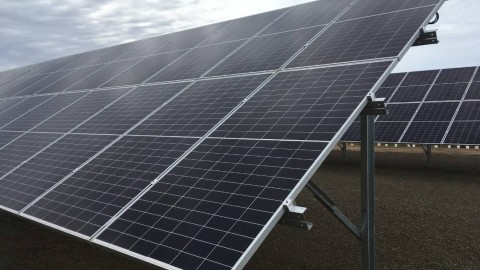Ground-breaking climate change research conducted by SA Water has successfully demonstrated an ability to monitor and reduce nitrous oxide emissions by 30 per cent from its wastewater treatment plant at Bolivar.
Trialled in partnership with the University of Queensland, the research collects and models nitrous oxide through floating ‘hoods’ anchored along activated sludge plants and pipe through a computer monitoring system, which then analyses the gas in short intervals.
This new research may inform future United Nations’ greenhouse gas guidelines.
The technology was created using the engineering resources and more than 20 years expertise of SA Water’s commercial business unit Water Engineering Technologies, which designs and manufactures customised solutions for water and wastewater utilities across Australia.
SA Water’s Lead Scientist Environment and Wastewater, Dr Ben van den Akker, said the technology allows emissions of the gas to be monitored in real time, for the very first time.
“Nitrous oxide is a by-product of the process of biologically removing nitrogen from wastewater and represents up to 50 per cent of total emissions released from wastewater treatment plants, which is far greater than methane and emissions from electricity consumption,” Dr Ben van den Akker said.
“Using this method, we are able to record and quantify nitrous oxide emissions at our Bolivar Wastewater Treatment Plant for the very first time and will eventually allow us to predict emissions at any of our locations at any time.
“This is the first detailed data set ever reported for the step fed design activated sludge plant – one of the most common wastewater treatment technologies in the world – and enables us to map emissions ‘hot spots’ to better target necessary optimisation and control measures.”
As part of a trial, optimisation of aeration profiles led to a reduction in measured emissions of nearly one-third, leading to other plant improvements and energy savings.
The research has since been scientifically validated and published in four academic publications, putting SA Water at the forefront of addressing a major problem commonly facing wastewater treatment across the world.
“This emissions factor data may also be included in revised Guidelines for National Greenhouse Gas Inventories by the International Panel on Climate Change – an intergovernmental body of the United Nations comprised of 195 countries from around the world – later this year, which shows the global significance and interest this research has on revising industry policy,” Dr van den Akker said.
“Tackling climate change is everyone’s responsibility, and with nitrous oxide having a global warming potential 310 times greater than carbon dioxide, it is vitally important that all utilities work to reduce emissions in their operations without compromising on plant performance.
“The successful outcomes of this research also demonstrates the importance of industry working with research bodies and partners like the University of Queensland to deliver benefits to wider society.”














